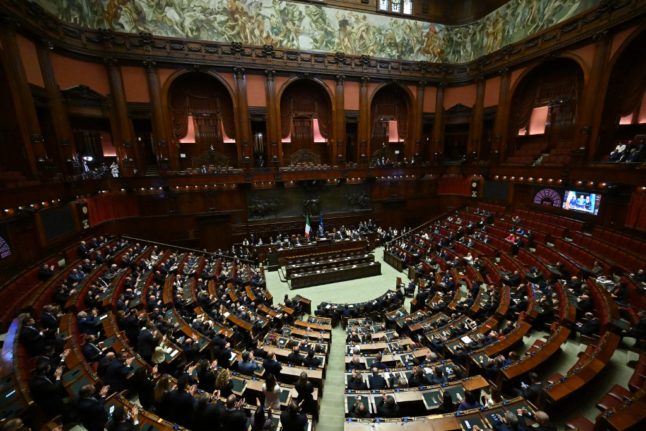Members of parliament voted instead to give Prime Minister Giorgia Meloni’s hard-right government six months to enact measures to make pay in Italy “fairer”.
Opposition members shouted “for shame!” as the bill, which would have set a minimum wage of nine euros an hour before tax, was quashed.
READ ALSO: Why is Italy’s government opposed to the minimum wage?
“You are on the side of the exploiters, you slap the exploited in the face!” thundered Elly Schlein, head of the centre-left opposition Democratic Party.
Italy is one of five countries in the European Union where wages are determined solely by collective bargaining between employers and trade unions. The others are Austria, Denmark, Finland and Sweden.
The centre-left put forward its proposal aimed at ending “poverty wages” in July, but Meloni’s coalition insists it could make some workers worse off.
The government has proposed extending collective agreements to some 20 percent of workers not covered by existing agreements.
But many of them remain well below nine euros an hour, such as those for cleaning services (6.52 euros), catering (7.28) or tourism (7.48).
As tempers frayed in parliament, former prime minister Giuseppe Conte, head of the once anti-establishment Five Star Movement (M5S), symbolically tore up a copy of the government’s bill, to the applause of opposition deputies.
Those who voted against the minimum wages “have turned their backs on 3.6 million workers”, he said.
La nostra battaglia sul #salariominimo legale non finisce qui. Il Paese è con noi. pic.twitter.com/ogk07RA134
— Giuseppe Conte (@GiuseppeConteIT) December 5, 2023
But Meloni insisted that setting a minimum “paradoxically risks lowering wages, because 95 percent of workers have a higher hourly wage.”
“We risk an employer saying ‘if I can lower it to nine euros, why do I have to pay more?'”, she said on Wednesday.
The creation of a “decent salary” does not necessarily involve “setting a figure”, insisted Labour Minister Marina Elvira Calderone.
READ ALSO: Why Italy has no minimum wage
According to polls, 70 percent of Italians – including those who voted for the government’s coalition parties – are in favour of a minimum wage.
But some, including small traders, restaurant owners and farmers, are opposed to the minimum wage, which they consider too restrictive.
The unions are divided. The biggest, CGIL, said on Wednesday the government had “made a serious error” in opposing the minimum wage. But the other large union, CISL, is opposed to it because it worries it would reduce their powers over collective agreements.
According to the OECD, Italy is the only European country where real wages (excluding inflation) decreased between 1990 and 2020 (-2.9 percent). The EU brought in rules in November 2022 governing the minimum wage, but they are voluntary.



 Please whitelist us to continue reading.
Please whitelist us to continue reading.
Member comments